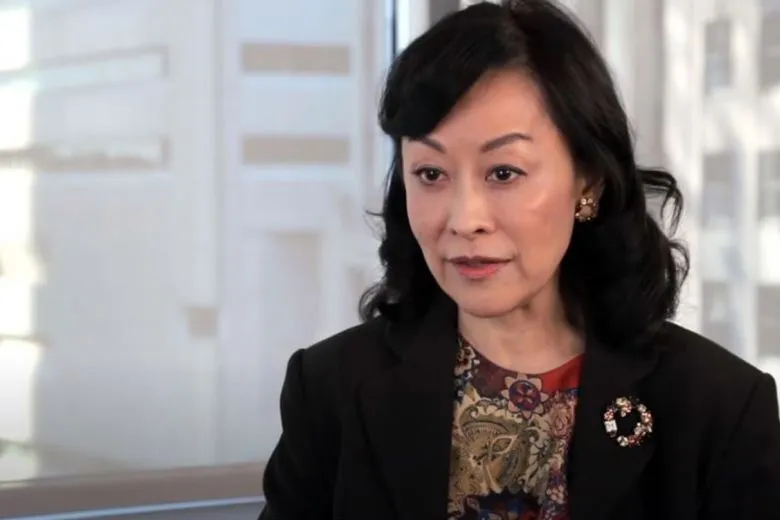林学芬律师因处理李光耀遗嘱失当被停职15个月
纪律法庭于今年二月裁定林学芬女士犯有严重不当的职业行为。照片来自摩根路易斯律师事务所的YOUTUBE。
|1 min read

<p>新加坡高级律师林学芬因处理已故公公李光耀的临终遗嘱而被三司特别庭停职15个月。 </p> <p>法律界最高纪律机构在周五(11月20日)公布的判决书中裁定,林女士有失检控律师资格,并表示林女士“盲目听从了丈夫的指示,而她的丈夫正是遗嘱的重要受益人,她帮忙快速完成了遗嘱”。</p> <p>案件集中在林女士在准备和执行李光耀于2013年12月17日签署的临终遗嘱中所起的作用。</p> <p>他的临终遗嘱和第六份遗嘱、也是倒数第二份遗嘱有很大的不同,包括其遗产在他三个孩子中的分配,以及他位于欧思礼路38号房屋的拆除。这份遗嘱也没有包含他想要的一些变更,他曾在四天前与他的惯例律师柯金梨进行过讨论。</p> <p>纪律法庭于今年二月裁定林女士犯有严重不当的职业行为。</p> <p>法庭于八月举行了线上庭审,法律协会在听证会上就为何林女士对遗嘱的处理应被取消律师资格提出了论据。林女士的律师要求撤销所有指控。</p> <h2>“不得体的仓促”</h2> <p>在这份98页的判决书中,由首席法官Sundaresh Menon、上诉法官Judith Prakash和Woo Bih Li法官组成的法庭称,林女士在其丈夫的要求下,以“不得体的仓促”的方式强行完成了遗嘱。</p> <p>在林女士将遗嘱草稿发给李光耀仅仅16个小时之后,这份遗嘱就被签署了。</p> <p>法庭表示,林女士转发了这份草稿,该草稿本应以第一份遗嘱为基础,但她没有核实该遗嘱的版本是否正确。</p> <p>法庭补充称,林女士事实上知道她没有资格去核实,因为她并没有参与第一份遗嘱的完成。</p> <p>法庭表示,即便在那时,林女士也默许李光耀的律师柯金梨女士不参与临终遗嘱的准备。</p> <p>柯女士是执行第一份遗嘱的律师。</p> <p>尽管存在这些因素,林女士仍允许李光耀继续执行临终遗嘱,并安排她在腾福律师事务所的律师同事雷安智和江秀慧为见证人。</p> <p>据法庭称,尽管林学芬承认李光耀会相信并信任她的陈述,但她还是这么做了。</p> <p>法庭补充称,在临终遗嘱被执行后,林女士并没有将所发生的一切向柯女士全面坦白。</p> <p>法庭表示,林女士知道丈夫是临终遗嘱的重要受益人,这使得她的行为更为恶劣。法院还补充称,林女士的忠诚存在分歧。</p> <p>“一方面,(她)忠于她的丈夫,她的丈夫是临终遗嘱的重要受益人,他显然急于执行遗嘱。”</p> <p>“另一方面,(她)有责任正直地行事,并确保(她有理由将其视为客户的)李光耀先生在执行临终遗嘱前充分了解事实情况。”</p> <p>法庭表示:“即使没有默示的聘用关系,存在分歧的忠诚所带来的潜在利益冲突对被告来说是很明显的。”</p> <p>法庭补充称,即使不考虑可能产生的利益冲突,如果林女士与李光耀之间存在律师和委托人关系,她的行为将“严重违反职责”。</p> <p>法庭表示,在此案中,她“不仅没有谨慎行事,实际上还完全不顾李光耀先生的利益”。</p> <p>法庭补充说:“在这种情况下,她未能阻止丈夫不得体的仓促执行临终遗嘱,只能被认为是不恰当和不可接受的。”</p> <p>但是法庭不同意纪律法庭的一些调查结果,特别是林女士与李光耀之间存在默示的聘用关系,以及他们之间是律师与委托人的关系。</p> <p>法庭还表示,林女士并没有直接收到李光耀的指令或指示。</p> <h2>林学芬回应</h2> <p>林女士在丈夫李显扬周五于Facebook上发布的一份声明中表示,她不同意这一决定。</p> <p>林学芬说:“这个案件甚至连发起都没有根据。这是一份私人遗嘱。”</p> <p>“李光耀知道自己想要什么。他得到了他想要的。三司特别庭没有认定他精神不正常或者不受控制。在我受命寻找见证人之前,李光耀和他的律师柯金梨讨论后决定将遗嘱恢复到他2011年具有里程碑意义的遗嘱。任何人都可以在活着的时候撤销自己的遗嘱。”</p> <p><img src="https://imgur.com/0Y1qOVG.jpg"></p> <p>位于欧思礼路38号前总理李光耀的家。照片来自ST FILE。</p> <p>林女士在处理临终遗嘱时所起的作用已促使总检察署于去年一月就可能的专业不当行为向法律协会投诉。</p> <p>副总检察长Lionel Yee要求将案件移交至纪律法庭,同时,首席法官Menon任命了一个由高级法律顾问Sarjit Singh Gill和Leon Yee Kee Shian律师组成的二人审判席。</p> <p>审判席在其206页的判决理由书中说,事实暴露了一个“令人不快的故事”,李光耀先生的惯例律师柯女士准备了他之前的六份遗嘱,而林女士和她的丈夫不经柯女士的建议就误导李老先生签署新的遗嘱。</p> <p>李老先生当时90岁了,身体不好。</p> <p>今年8月,法院在线上庭审后保留了判决。</p> <p>以Koh Swee Yen律师为代表的法律协会曾辩称,尽管林学芬明知丈夫会从中得益,但她仍参与了遗嘱的准备及执行。</p> <p>法律协会还表示,这位37岁的律师催促她的公公完成了签署遗嘱的过程,没有听取为公公准备之前遗嘱的惯例律师的意见。</p> <p>高级法律顾问Kenneth Tan和前总检察长Walter Woon教授出庭反驳该协会的论点,称林女士作为儿媳是出于感情和关心在协助李光耀,她只是在履行行政职责。</p> <p>他们补充称,不可能存在任何利益冲突,因为李光耀先生是“一位杰出的律师”,他完全清楚自己想要什么,并同意林女士替他处理遗嘱。他们要求撤销所有指控。</p>

